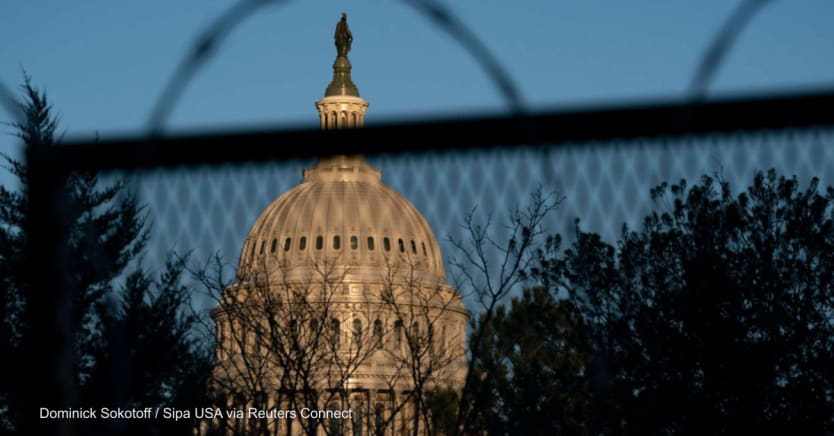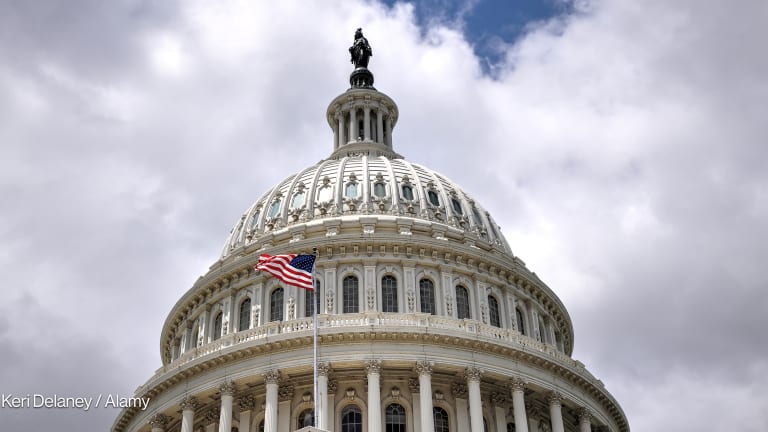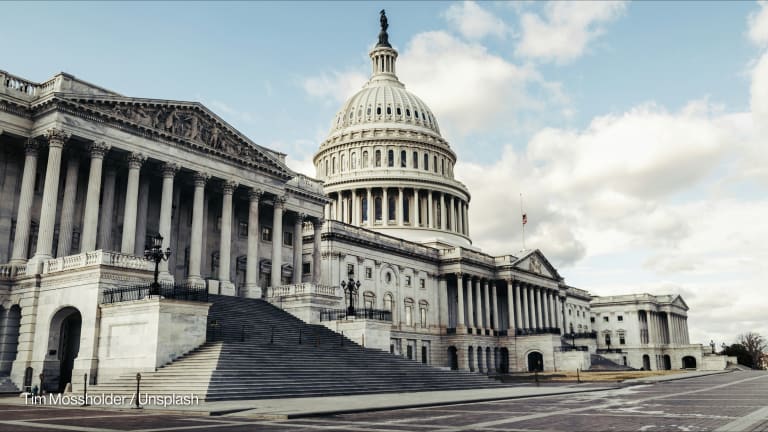
The U.S. House of Representatives rejected a proposal from the Biden administration to temporarily expand the U.S. International Development Finance Corporation’s remit in response to Russia’s war in Ukraine, as lawmakers and development advocates warned it might push the agency away from its development mandate.
The House late Tuesday approved a $40 billion supplemental funding bill to help Ukraine respond militarily and address the humanitarian impact of the war. It included more money than the White House asked for but did not broaden the group of countries where DFC can invest.
The bill includes nearly $4.35 billion for the U.S. Agency for International Development to support humanitarian needs; about $8.77 billion for the State Department’s economic support fund; $150 million for the Global Agriculture and Food Security Program, and $20 million for the Bill Emerson Humanitarian Trust.
When President Joe Biden requested the additional funding from Congress in April, the White House included a proposal to temporarily suspend DFC’s requirement to prioritize low- and lower-middle-income countries so it could address “the situation in Ukraine and in countries impacted by the situation in Ukraine.”
The proposed suspension would have been active through fiscal year 2027 “to more easily direct support to relevant countries,” according to the request.
The request “didn’t land well on the Hill” and key lawmakers favor DFC’s current development mandate, a source close to the discussions, who requested anonymity to share private conversations, told Devex.
“What DFC wanted, Congress didn’t,” said the source, adding that at least one of the top four appropriators wanted it killed. “The scope and breadth of the ask, all pushed through in a very short time frame, probably didn’t help.”
The proposed change “would effectively allow them to work in any country in the world since every country has been impacted in some way,” said a congressional aide, who asked not to be identified. “It also would remove any requirement for a development impact for its work in UMICs [upper middle-income countries].”
DFC is working with Congress to find more flexibility to respond to the Ukraine war more nimbly, including the refugee crisis, food supply challenges, and energy security needs, Devex learned.
DFC would like to work in Poland, where it believes its financing could be greatly beneficial, Devex learned. But the agency is not permitted to invest in high-income countries such as Poland under its current mandate.
The congressional aide questioned why Poland would need DFC funding when it has access to EU money.
The $40 billion aid package approved in the House includes $500 million for the European Bank for Reconstruction and Development, which has a large portfolio of investments in Poland.
Lawmakers have tried on several occasions to use DFC to fund other priorities — Congress tried it in 2021 with the Ensuring American Global Leadership and Engagement Act, or EAGLE Act; provided an exemption for higher-income countries in the European Energy Security and Diversification Act of 2019; and most recently included a high-income country exemption for telecommunications investments in Europe as part of the Transatlantic Telecommunications Security Act.
It “is really dangerous for the DFC,” said a development advocate, who requested anonymity, ahead of the vote. If it is allowed to invest in such a broad range of countries, it “would be a mission drift for the DFC on such a large scale and for so long that they might never recover from it.”
The Modernizing Foreign Assistance Network, a coalition focused on aid effectiveness, had called on Congress to reject the administration’s waiver of DFC’s development mandate.
MFAN supports DFC’s ability to assist Ukraine in rebuilding efforts but cautions “against any backsliding of the DFC’s development mandate,” its co-chairs Lester Munson, Larry Nowels, and Tessie San Martin said in a statement before the bill was introduced Tuesday.
If DFC deviates from its development mission, it is “guaranteed to fracture bipartisan support for the agency,” the congressional aide told Devex.
Some advocates told Devex that if the administration needs an exemption, it should be much narrower, perhaps only applying to countries bordering Ukraine and for a limited period.








